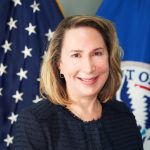
One-stop shop for local climate action
Locally Led Hubs for Every State and Territory
Climate Innovation Centers are at the heart of the Climate Ready America system. They are statewide one-stop shops that bring together the best climate knowledge, tools, and expertise to help communities take effective action. While tailored to the unique needs of individual states, territories, or Tribes, every Center is also part of a nationwide learning network, making it easier to share solutions, scale what works, and accelerate effective action where it matters most.
Led by a Leadership Circle of existing climate service organizations and hosted by the institution best suited to the task in each state or territory, Climate Innovation Centers strengthen what already works, fill service gaps, and make climate resilience resources accessible to all, especially frontline and under-resourced communities.
Key roles that Power each Climate Innovation Center
Each Center starts with a Convener Organization, a trusted partner from the state, territory, or Tribe, that assembles the Leadership Circle and prepares the region for its Climate Innovation Center launch. Conveners may have a focus on climate adaptation, climate mitigation, or both. Conveners work in parallel with Navigator host organizations, ensuring that local expertise, community needs, and regional goals are aligned from the start.
While some Conveners may ultimately host their state, territory, or Tribe’s Center, that decision is made by the Leadership Circle. The Convener Organization’s primary goal is to ensure that their region is ready to stand up a fully functional, locally led Climate Innovation Center when the time comes.
The Leadership Circle serves as the main decision-making group for the Climate Innovation Center. It brings together experienced climate leaders from across the the state, territory, or Tribe, representing a wide range of fields and perspectives. This diversity ensures that the many challenges of climate work are fully considered—including both climate adaptation and reducing greenhouse gas emissions, as well as the specific climate impacts facing each locality. Climate justice voices are also an essential part of the Circle.
A defining feature of the Leadership Circle is its commitment to remain nonpartisan and independent from special interest influence. Its responsibility is to the people, communities, and regions of the region, working toward solutions that are resilient, fair, and built to last.
Host organizations are chosen by the Leadership Circle to serve as the public face of the Climate Innovation Center. They must be trusted and recognized locally as organizations that welcome and serve all people. Their specific responsibilities are set by the Leadership Circle but often include managing the Center’s online portal, leading public communications, providing a home for the Center’s Help Desk, and in some cases, managing the Center’s finances.
The Financial Management Organization is responsible for handling the funds that flow through the Climate Innovation Center. This organization must have proven experience in receiving and distributing money responsibly. The Center’s funding may include grants, pass-through funds, and potentially fee-for-service contracts, all of which require careful financial oversight.
Geos Institute: Support for building and running a Climate Innovation Center
We support Convening Organizations, Leadership Circles, and Host Organizations with:
- Templates for conducting a climate services gap analysis to identify strengths, weaknesses, and unmet needs in the state or territory
- Strategic planning facilitation for the Center’s launch and long-term success
- A customizable website portal template for their Center
- A data collection framework for measuring impact and progress
- Technical support for the Center’s online portal
- Regional coordination to link Climate Innovation Centers with one another, connect them to national expertise, funding opportunities, and support peer learning
- Support in shaping and advancing a national agenda that reflects local and regional priorities while aligning with broader national goals
Why every state, territory, or Tribe needs a Climate Innovation Center
Our 50-state Landscape Analysis showed that no two localities are alike in climate focus, capacity, existing resources, and climate service needs. Therefore, a top-down, one-size-fits-all approach does not work, but an approach that is standardized enough to create a functional system, but customizable by in-state leaders, can. Centers provide:
- Efficient access to the tools and resources all communities in a locality need to take effective climate action
- Customization to accommodate each locality’s political, economic, and environmental realities
- Support for existing programs, while filling service gaps with new resources
- A learning system that evolves as community needs change and new solutions emerge

First in the nation: the Georgia Climate Innovation Center
In 2024, the Georgia Conservancy became the Convening Organization for the first Climate Innovation Center in the nation. With support from Geos Institute, they conducted a gap analysis, developed the Leadership Circle, and created the strategic launch plan for the Georgia Climate Innovation Center. Lessons learned from this process are informing the efforts of the next states to develop their centers.

A Nationwide Network for Local-Level Climate Action
While each Climate Innovation Center operates at the state, territory, or Tribal level, all are linked through Climate Ready America’s national network. This allows:
- Rapid sharing of what works (and what doesn’t)
- Coordinated solutions to regional and cross-locality challenges
- Faster scaling of innovations to meet urgent climate needs
Help build community-focused climate resilience
The sooner Climate Innovation Centers are launched, the sooner every community can access the tools they need to cut emissions, build resilience, and thrive.

 Robert Macnee, Ph.D. is Deputy Director of Resilience Services at Climate Resilience Consulting, where he helps governments, institutions, and communities reduce climate risk in equitable and practical ways. He holds a Ph.D. in Environmental Management focused on climate change impacts on health and communities, and brings over a decade of experience spanning economic development, resilience planning, and implementation.
Robert Macnee, Ph.D. is Deputy Director of Resilience Services at Climate Resilience Consulting, where he helps governments, institutions, and communities reduce climate risk in equitable and practical ways. He holds a Ph.D. in Environmental Management focused on climate change impacts on health and communities, and brings over a decade of experience spanning economic development, resilience planning, and implementation. Samantha Medlock is President of Climate Risk Advisors, helping communities and organizations advance equity, sustainability, and resilience. Her career began chasing floods as a local official in Texas Flash Flood Alley—a hands-on experience that still shapes her approach to climate and disaster risk management.
Samantha Medlock is President of Climate Risk Advisors, helping communities and organizations advance equity, sustainability, and resilience. Her career began chasing floods as a local official in Texas Flash Flood Alley—a hands-on experience that still shapes her approach to climate and disaster risk management.
 Jim is a multilingual world traveler. Based in Bavaria during the 1970s, Jim spent most of this period in India, Afghanistan and Nepal, where he founded and operated a charitable medical clinic serving Tibetan Refugees. He settled in Oregon in 1983 on a forested ranch in the Umpqua National Forest.
Jim is a multilingual world traveler. Based in Bavaria during the 1970s, Jim spent most of this period in India, Afghanistan and Nepal, where he founded and operated a charitable medical clinic serving Tibetan Refugees. He settled in Oregon in 1983 on a forested ranch in the Umpqua National Forest. Dr. Micah Hahn is an Associate Professor of Environmental Health in the Institute for Circumpolar Health Studies at the University of Alaska-Anchorage. She received her joint PhD in Epidemiology / Environment and Resources from the University of Wisconsin-Madison and her MPH in Global Environmental Health from Emory University. Subsequently, she was a postdoctoral fellow for the CDC Climate and Health Program, and in this position worked collaboratively with the CDC Division of Vector-borne Diseases and the National Center for Atmospheric Research. Her research focuses on understanding the health impacts of climate change and working with communities to develop locally-relevant adaptation and resilience-building strategies. Dr. Hahn is also on the Management Team of the Alaska Climate Adaptation Science Center.
Dr. Micah Hahn is an Associate Professor of Environmental Health in the Institute for Circumpolar Health Studies at the University of Alaska-Anchorage. She received her joint PhD in Epidemiology / Environment and Resources from the University of Wisconsin-Madison and her MPH in Global Environmental Health from Emory University. Subsequently, she was a postdoctoral fellow for the CDC Climate and Health Program, and in this position worked collaboratively with the CDC Division of Vector-borne Diseases and the National Center for Atmospheric Research. Her research focuses on understanding the health impacts of climate change and working with communities to develop locally-relevant adaptation and resilience-building strategies. Dr. Hahn is also on the Management Team of the Alaska Climate Adaptation Science Center. Michael is a former Founding Principal of Resilient Cities Catalyst, a global non-profit helping cities and their partners tackle their toughest challenges. He is currently the Executive Director of Climate Resilience Academy at the University of Miami.
Michael is a former Founding Principal of Resilient Cities Catalyst, a global non-profit helping cities and their partners tackle their toughest challenges. He is currently the Executive Director of Climate Resilience Academy at the University of Miami. Dr. Quintus Jett is a consultant, educator, and strategist for public causes. He has a doctorate in Organizations & Management from Stanford University, and a two-decade faculty career which spans schools, departments, and programs of business, engineering, liberal studies, divinity, and public and nonprofit management. Following Hurricane Katrina in 2005, Dr. Jett launched a volunteer project in New Orleans, which enlisted residents, students from over a dozen colleges and universities, and hundreds of others to field map the city’s Gentilly district, Lower Ninth Ward, and New Orleans East. Dr. Jett is an innovator in higher education, bridging the divide between academic research and the other priorities of the modern university, including student access and diversity, community engagement, and providing foundations for life-long learning in today’s rapidly changing world.
Dr. Quintus Jett is a consultant, educator, and strategist for public causes. He has a doctorate in Organizations & Management from Stanford University, and a two-decade faculty career which spans schools, departments, and programs of business, engineering, liberal studies, divinity, and public and nonprofit management. Following Hurricane Katrina in 2005, Dr. Jett launched a volunteer project in New Orleans, which enlisted residents, students from over a dozen colleges and universities, and hundreds of others to field map the city’s Gentilly district, Lower Ninth Ward, and New Orleans East. Dr. Jett is an innovator in higher education, bridging the divide between academic research and the other priorities of the modern university, including student access and diversity, community engagement, and providing foundations for life-long learning in today’s rapidly changing world. Scott is Monfort Professor of Atmospheric Science at Colorado State University. He has written about 100 publications in the peer-reviewed climate literature, is a former editor of the Journal of Climate, and served for five years as founding Science Chair of the North American Carbon Program.
Scott is Monfort Professor of Atmospheric Science at Colorado State University. He has written about 100 publications in the peer-reviewed climate literature, is a former editor of the Journal of Climate, and served for five years as founding Science Chair of the North American Carbon Program. Linda has many years of experience in disaster preparedness and resilience. She has been an elected official on the Linn County Iowa Board of Supervisors, Chair of the Metropolitan Planning Organization, the East Central Iowa Council of Governments, the statewide Mental Health Developmental Disability and the Linn County Board of Health. Langston is a former president of the National Association of Counties (2013-2014).
Linda has many years of experience in disaster preparedness and resilience. She has been an elected official on the Linn County Iowa Board of Supervisors, Chair of the Metropolitan Planning Organization, the East Central Iowa Council of Governments, the statewide Mental Health Developmental Disability and the Linn County Board of Health. Langston is a former president of the National Association of Counties (2013-2014). Ken works with families and organizations as a mediator, organizational consultant, trainer and facilitator. Along with his passion for helping people prepare for and reduce climate change, Ken also volunteers as a mediator through Mediation Works and is passionate about supporting youth through mentoring with Boys to Men of Southern Oregon.
Ken works with families and organizations as a mediator, organizational consultant, trainer and facilitator. Along with his passion for helping people prepare for and reduce climate change, Ken also volunteers as a mediator through Mediation Works and is passionate about supporting youth through mentoring with Boys to Men of Southern Oregon. Matthew is a retired high school teacher who was once honored as Oregon High School Social Studies Teacher of the Year. Before his teaching career he was in the restaurant business in Portland. He is also a lawyer who has been a member of the Oregon State Bar Association since 1980.
Matthew is a retired high school teacher who was once honored as Oregon High School Social Studies Teacher of the Year. Before his teaching career he was in the restaurant business in Portland. He is also a lawyer who has been a member of the Oregon State Bar Association since 1980. Andrea is the Resilience Policy Advisor for the North Carolina Office of Recovery and Resiliency. She works across state agencies and with local governments to increase the state’s resilience to the impacts of climate change.
Andrea is the Resilience Policy Advisor for the North Carolina Office of Recovery and Resiliency. She works across state agencies and with local governments to increase the state’s resilience to the impacts of climate change.